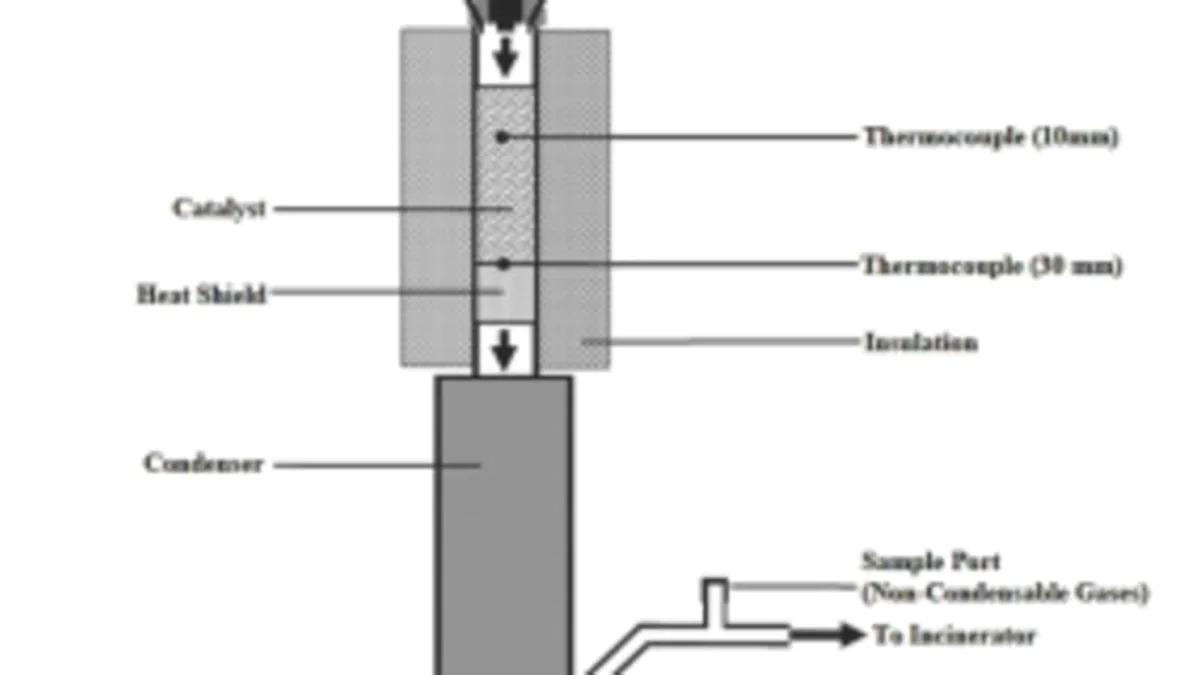Researchers the University of Minnesota led by Lanny Schmidt have developed a new catalytic reforming process to produce hydrogen from bio feedstocks. The process could produce hydrogen gas from all kinds of materials ranging from cow manure to yard waste, corn stalks and trees. They claim that about 70 percent of the hydrogen in the oil is released as gaseous hydrogen.
Supposedly, the process requires no external heat source because the heat released from the chemical reactions, is enough to sustain the process. In addition to the hydrogen, the reactor also produces carbon monoxide, but the initial report gives no indication of what is done with that. Schmidt and his grad students claim they are currently producing one pound of gas a day in their small scale reactor. If this process actually works it could provide a great source of hydrogen from all kinds of raw materials. Unfortunately , the description sounds more reminiscent of cold fusion than anything else. Disposing of the carbon monoxide and running a self sustaining hydrogen production process seem like very difficult problems to deal with. A paper on the developments will be published in the November 3rd issue of Science.
[Source: GreenCarCongress]
Supposedly, the process requires no external heat source because the heat released from the chemical reactions, is enough to sustain the process. In addition to the hydrogen, the reactor also produces carbon monoxide, but the initial report gives no indication of what is done with that. Schmidt and his grad students claim they are currently producing one pound of gas a day in their small scale reactor. If this process actually works it could provide a great source of hydrogen from all kinds of raw materials. Unfortunately , the description sounds more reminiscent of cold fusion than anything else. Disposing of the carbon monoxide and running a self sustaining hydrogen production process seem like very difficult problems to deal with. A paper on the developments will be published in the November 3rd issue of Science.
[Source: GreenCarCongress]


Sign in to post
Please sign in to leave a comment.
Continue